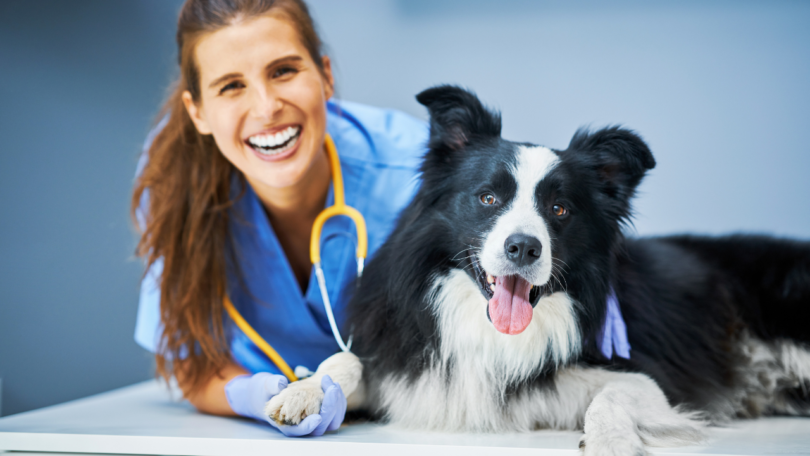As a pet owner, it’s natural to worry when your dog skips a meal. But how long can a dog go without eating before it becomes a serious issue? According to Dr. Hannah Godfrey, while dogs can survive several days without food, especially if they have access to water, early veterinary consultation is crucial to prevent potential health risks.
Understanding the difference between a fussy eater and a dog with a genuine health problem is key. While some dogs may turn down a meal or two without concern, persistent loss of appetite can signal underlying issues. Early recognition is vital to avoid irreversible damage to vital organs like the kidneys.
Experts recommend contacting a veterinarian if your dog refuses food for more than a day, especially if accompanied by vomiting or diarrhea. Healthy dogs can typically go without food for 3 to 5 days, but dehydration becomes critical after just 24 hours without water.
Changes in environment or food type can also affect a dog’s appetite. For instance, up to 30% of dogs may refuse food if their brand or formula changes. Monitoring your dog’s behavior and overall wellbeing is essential, as appetite changes can indicate health issues ranging from dental problems to emotional distress.
For more insights into your dog’s digestive health, visit our guide on why dogs get diarrhea. Remember, regular vet check-ups are your best defense against hidden health problems.
Understanding a Dog’s Appetite and Fasting Limits
Understanding your dog’s eating habits is crucial for their health. Appetite levels in dogs can vary due to a mix of internal and external factors.
Factors Influencing a Dog’s Hunger
Several elements can affect how hungry your dog feels. Medical issues, like gastrointestinal problems or dental pain, often reduce appetite. Environmental changes, such as moving or a new pet, can also cause stress, leading to eating less.
Physiological vs. Behavioral Causes
Physiological causes, like nausea or pain, can make your dog avoid meals. On the other hand, behavioral reasons, such as stress or boredom, might also reduce their interest in food. Recognizing these differences helps in addressing the root cause effectively.
Water intake is vital, even when your dog isn’t eating. Dehydration can set in quickly, so ensuring access to water is essential. Sometimes, subtle changes, like switching food brands, can also affect appetite, as some dogs are picky eaters.
It’s important to monitor your dog’s behavior and consult a vet if they refuse food for over a day, especially if accompanied by vomiting or diarrhea. Healthy dogs can usually go without food for 3 to 5 days, but dehydration becomes a concern after 24 hours without water.
How Long Can a Dog Go Without Eating: What You Need to Know
As a caring pet owner, it’s important to understand the limits of your dog’s fasting period. While dogs can survive without food for several days, it’s crucial to recognize when fasting becomes unsafe.
Safe Fasting Periods for Healthy Dogs
Generally, healthy dogs can go without food for 3 to 5 days, provided they have access to water. However, this timeframe can vary depending on factors like age, health, and activity level. Puppies and senior dogs, for instance, may not tolerate fasting as well as adult dogs.
Water intake is critical during fasting periods. Even a day without water can lead to dehydration, which can quickly become dangerous. Always ensure your dog has fresh water available.
Risks Associated with Extended Fasting
Extended fasting can lead to serious health issues, including organ damage and metabolic problems. After 3 days without food, dogs may start to feel weak as their bodies begin to break down fat and muscle for energy. This can strain vital organs like the kidneys and liver.
If your dog refuses food for more than a day, especially if accompanied by vomiting or diarrhea, it’s time to consult your veterinarian. Early intervention can prevent severe complications and ensure your dog stays healthy.
Remember, every dog is different, and some may need more frequent meals than others. If you’re ever in doubt about your dog’s health, don’t hesitate to reach out to your vet for advice.
Recognizing Warning Signs and When to Consult Your Vet
Monitoring your dog’s health is essential to catch potential issues early. Changes in behavior or physical symptoms can signal that your dog needs veterinary care.
Physical Indicators of Distress
Physical signs of illness in dogs can include lethargy, a distended belly, or pain when moving. These symptoms often indicate underlying health problems that require attention. For instance, a dog showing pain during movement may have an injury or an internal issue.
Behavioral Changes That Signal a Problem
Behavioral changes are just as important as physical symptoms. If your dog shows decreased interest in play or appears depressed, it could be a sign of an underlying illness. Monitoring these changes helps in identifying when to seek veterinary care.
It’s crucial to keep an eye on your dog’s day-to-day appetite and energy levels. Even one day without food can be a symptom of distress, especially if accompanied by other signs like vomiting or diarrhea. For more information on digestive issues, visit our guide on dog diarrhea causes.
Make sure to contact your veterinarian if your dog refuses food for more than a day, especially if other symptoms like vomiting or diarrhea are present. Early intervention can prevent severe health complications. Organ issues, such as kidney problems, require prompt attention to avoid serious consequences.
Keeping a daily log of your dog’s behavior, appetite, and physical condition can help identify subtle changes that may indicate illness. Don’t hesitate to reach out to your vet if you notice any unusual signs that persist or worsen over time.
Common Causes of Appetite Loss in Dogs
Understanding why your dog isn’t eating can be puzzling, but there are many possible reasons. Appetite loss in dogs can stem from medical issues, environmental changes, or even dietary preferences. Recognizing these factors can help you address the problem effectively.
Medical Reasons Behind Anorexia and Hyporexia
Medical conditions are a leading cause of appetite loss. Gastrointestinal disorders, dental pain, or systemic illnesses like kidney disease can make your dog avoid the food bowl. Even issues like a bad tooth or side effects from medication can suppress their appetite. If your dog shows signs of illness alongside a loss of appetite, it’s crucial to consult your vet promptly.
Environmental and Dietary Factors
Sometimes, the environment or diet can affect your dog’s eating habits. Moving to a new place or rearranging your home can stress your dog, leading to reduced appetite. Dietary factors, such as the quality of dog food or its placement, also play a role. Some dogs are picky eaters and may turn down food if the flavor or presentation changes. Ensuring your dog has access to fresh water is always important, especially if they’re not eating.
Monitoring your dog’s behavior and appetite is key. If they refuse food for more than a day, especially with signs like vomiting or diarrhea, contact your vet. Early intervention can prevent serious health issues. Remember, every dog is different, so tailored advice from a veterinarian is essential for their wellbeing.
Effective Strategies to Encourage Your Dog to Eat
Helping your dog regain their appetite can be challenging, but with the right approach, you can make mealtime appealing again. Whether your dog has lost interest in their food or is recovering from an illness, these strategies can help stimulate their appetite and ensure they get the nutrients they need.
Dietary Adjustments and New Food Options
One effective way to encourage eating is by introducing new flavors or textures. Try adding a small amount of low-sodium chicken broth or unseasoned, boiled chicken to their meal. These can make their food more appealing without causing stomach upset. Gradually introducing new foods can also prevent digestive issues.
Consider switching between wet and dry food to renew their interest. Some dogs prefer the moisture content in wet food, while others enjoy the crunch of dry kibble. Mixing both can provide variety and make meals more engaging.
Practical Feeding Tips from Veterinarians
Veterinarians recommend creating a calm and comfortable eating environment. For senior dogs, raising the food bowl to chest height can reduce strain and make eating easier. Ensure their food is fresh and stored properly to maintain its appeal.
Feeding at consistent times helps establish a routine. If your dog doesn’t eat within 10-15 minutes, remove the food and offer it again at the next scheduled time to prevent picky behavior. Patience is key, but if your dog refuses food for more than a day, consult your vet to rule out underlying issues.
Key Takeaways for Your Dog’s Health and Nutritional Wellbeing
Proactive care is essential for maintaining your dog’s health and wellbeing. While dogs can typically go without food for three to five days, it’s crucial to monitor their behavior and seek veterinary advice if they refuse meals for more than a day, especially if accompanied by vomiting or diarrhea.
Water intake remains vital, even during fasting periods. Dehydration can set in within 24 hours, making it a critical concern. Changes in appetite can signal underlying health issues, such as kidney problems or dental pain, so early intervention is key to preventing serious complications.
To encourage eating, try introducing new flavors or textures, like adding low-sodium chicken broth to their meal. Environmental factors, such as stress or changes in food presentation, can also impact appetite. Consistent veterinary checkups and personalized care are essential for addressing these issues effectively.
Long-term appetite loss can lead to organ damage and metabolic problems. If your dog shows signs of distress or refuses food for an extended period, consult your vet promptly. For more information on maintaining your dog’s nutritional health, visit our guide on dog food recall information.
FAQ
Why would a dog lose its appetite?
A dog’s appetite can decrease due to various reasons, including illness, pain, dental issues, or changes in diet. It’s important to monitor these changes and consult a vet if they persist.
What are the signs that a dog is not eating enough?
Signs include an empty food bowl, weight loss, lethargy, and lack of interest in treats or meals. If these symptoms persist for more than a day, it’s a cause for concern.
Can a dog go without food for an extended period?
While dogs can survive without food for a few days, prolonged fasting can lead to health complications, such as organ damage or metabolic issues. Always consult a vet if your dog skips meals for more than 24 hours.
How can I encourage my dog to eat?
Try offering a flavorful diet, such as chicken or wet food, and ensure access to fresh water. Consult your vet for professional advice tailored to your dog’s needs.










Leave a Comment